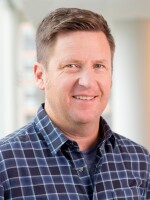SCOTT SIMON, HOST:
Loved ones of those who died in this week's mass shooting in Fort Hood, Texas, are grieving and searching for answers. Four soldiers were killed, 16 others wounded when a gunman opened fire on the base on Wednesday. The U.S. military says that the alleged shooter, Specialist Ivan Lopez, shot himself, too. Investigation into his motive continues.
NPR's Kirk Siegler reports that there's been a noticeable change in the rhetoric of Army officials over what that motive may have been.
KIRK SIEGLER, BYLINE: In the hours after Wednesday's shooting spree here, Fort Hood officials pointed to Lopez's mental state as one possible explanation behind his actions. He had been prescribed medication for depression and anxiety, military officials said. But yesterday afternoon, Fort Hood commander Mark Milley stepped to a bank of TV cameras and reporters and delicately changed the narrative.
(SOUNDBITE OF PRESS CONFERENCE)
LT. GEN. MARK MILLEY: His underlying medical conditions, we do not believe, are the direct precipitating factor to the incident.
SIEGLER: Rather, Milley said, it appears an argument may have directly led to the mass shooting.
MILLEY: We are digging into his combat experience in Iraq. And so far, we have not discovered any specific traumatic event, wounds received in action, contact with the enemy or anything else specific that he may have been exposed to while deployed. But we are continuing to examine this line of inquire.
SIEGLER: Milley promised a robust investigation. There were more than a hundred agents and forensic specialists from both the Army and the FBI on the case. Much of their work is centered on a crime scene inside this massive base that covers about two city blocks. Officials believe that Specialist Lopez began his shooting spree after that verbal altercation, then drove in his own vehicle firing randomly at other soldiers as he continued to at least two other locations. Authorities don't believe Lopez was targeting any one person specifically.
CHRIS GRAY: We have not uncovered any history of criminal convictions or previous criminal activity by Specialist Lopez.
SIEGLER: Chris Gray is the spokesman for the Army's Criminal Investigation Division.
GRAY: At this time, we have not established a concrete motive, but we will do everything in our power to do so.
SIEGLER: This week's shooting has been an eerie reminder of the events here in November of 2009 when a Major Nidal Hasan fatally shot 13 people. It's also raised questions about whether changes by the military in response to that shooting went far enough and whether all soldiers across the military are getting the help they need when they need it.
JOHN GALLIGAN: I think it's important that all commanders at all levels sit down and honestly acknowledge the fact that we're going to see this again, maybe not at Fort Hood but at some other installation.
SIEGLER: John Galligan is a former military judge at Fort Hood who later served as defense counsel to Maj. Nidal Hasan. He says there were some changes made to help identify and treat troubled soldiers after 2009, but they didn't go far enough.
GALLIGAN: It's the kind of case where it's not really a matter of money. Sometimes it's a matter of having trained professionals, an adequate number of trained professionals available to help with these soldiers, you know. They're the type of problems that need pretty prompt assistance.
SIEGLER: But right now in the days immediately following the shooting, most in the military community seem focused still on grieving and trying to figure out why the 34-year-old father Ivan Lopez did what he did. Yesterday's news conference included an especially somber note - the names of the three victims were finally released. They're 39-year-old Sgt. 1st Class Daniel Michael Ferguson, of Florida; 38-year-old Staff Sgt. Carlos Lazaney-Rodriguez, of Puerto Rico; and 37-year-old Sgt. Timothy Wayne Owens, of Illinois. Fort Hood officials are planning a memorial here Wednesday.
Kirk Siegler, NPR News, Killeen, Texas. Transcript provided by NPR, Copyright NPR.


